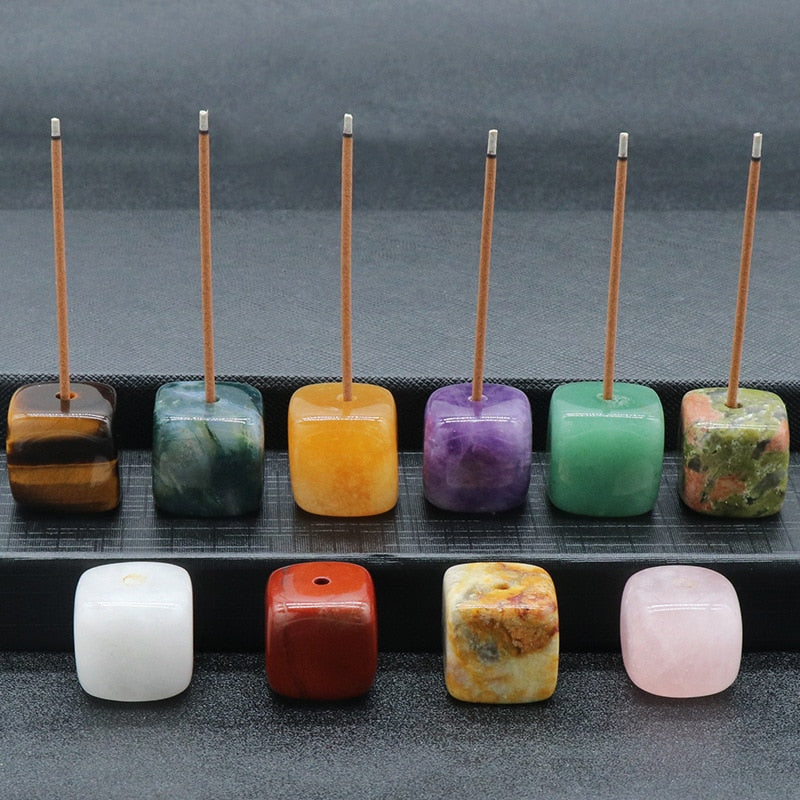Avez-vous déjà eu l'impression de cacher une part de vous-même, même à vous-même ? Un ensemble de sentiments, de désirs et de souvenirs que vous avez repoussés parce qu'ils vous semblaient inconfortables, inacceptables ou « incorrects » ? Ce monde caché est ce que le psychologue Carl Jung appelait le « moi de l'ombre ». Adopter une pratique appelée « travail de l'ombre » est la clé pour explorer ce paysage intérieur, non pas pour l'éliminer, mais pour l'intégrer afin de progresser et de guérir profondément. Si vous recherchez une plus grande authenticité et une connexion plus profonde à votre véritable moi, vous êtes au bon endroit.
Ce guide complet vous éclairera sur le travail de l'ombre , explorera ses bienfaits transformateurs et vous guidera avec douceur pour entamer ce puissant voyage. En comprenant votre ombre et en vous engageant avec compassion, vous pourrez accéder à une version plus complète, plus autonome et plus authentique de vous-même.
Dévoiler l’ombre : qu’est-ce que le travail de l’ombre ?
Fondamentalement, le travail de l'ombre consiste à explorer son inconscient pour révéler les parties de soi que l'on refoule et dissimule . Ce concept a été lancé par le célèbre psychiatre suisse Carl Jung . Il pensait que l'« ombre » renfermait tous les aspects de notre personnalité – comme la colère, la jalousie, la honte ou les pulsions créatrices – que notre ego conscient a rejetés ou reniés. Ces traits ne sont pas intrinsèquement mauvais ; ils font simplement partie de l'expérience humaine que la famille, la société ou notre propre perception de soi nous ont appris à réprimer.
Le travail de l'ombre ne consiste pas à céder à des comportements négatifs, mais plutôt à prendre conscience de ces parties cachées. Ignorer cette ombre ne disparaît pas. Au contraire, elle peut se manifester dans nos vies par l'auto-sabotage, des réactions émotionnelles irrationnelles, de l'anxiété et la projection de nos problèmes non résolus sur les autres. Le travail de l'ombre vous invite à vous tourner vers l'intérieur avec curiosité et compassion pour comprendre ces parties reniées, écouter leurs besoins et intégrer leur sagesse à votre vie consciente.
Les bienfaits spirituels et psychologiques du travail de l'ombre
S'engager dans le travail sur soi-même est un acte courageux d'amour-propre qui procure d'incroyables bienfaits. En affrontant les aspects de nous-mêmes que nous avons niés, nous cessons de gaspiller notre énergie à refouler et accédons à de nouveaux niveaux de liberté et de vitalité. L'objectif est la plénitude, menant à une vie plus authentique et plus équilibrée.

Voici quelques-uns des principaux avantages :
- Conscience de soi améliorée : Vous acquérez une compréhension plus profonde de vos motivations, de vos déclencheurs et de vos comportements. Cette clarté est le fondement d'une vie consciente.
- Guérison émotionnelle et résilience : en abordant les émotions refoulées et les blessures passées, vous pouvez les guérir à la racine, conduisant à une plus grande stabilité émotionnelle et à une plus grande résilience face aux défis.
- Relations améliorées : En comprenant votre propre ombre, vous êtes moins susceptible de projeter vos insécurités sur les autres. Cela conduit à des relations plus authentiques, plus bienveillantes et plus saines.
- Créativité et énergie accrues : L'ombre recèle souvent un immense potentiel créatif et une énergie brute. Son intégration peut libérer de nouvelles passions, de l'inspiration et de la vitalité.
- Une plus grande authenticité : le travail de l’ombre vous permet d’accepter et d’aimer toutes les parties de vous-même, conduisant à une vie qui vous appartient véritablement et sans complexe.
Comment démarrer votre parcours de travail d'ombre en toute sécurité
Commencer votre parcours de travail de l'ombre exige de la patience, de l'auto-compassion et un environnement sécurisant. Ce n'est pas une course, mais un développement progressif. L'essentiel est d'aborder votre monde intérieur avec curiosité plutôt que par jugement. Créer un rituel simple et encourageant peut rendre le processus plus ancré et intentionnel.
Tenir un journal est un excellent point de départ. Un journal dédié au travail de l'ombre offre un espace privé pour explorer vos pensées et vos émotions sans crainte de critiques. Vous pouvez utiliser des pistes spécifiques pour guider votre réflexion, comme « Quelles qualités chez les autres m'irritent le plus ? » ou « Quand est-ce que je me sens le plus en insécurité ? » Ces questions pointent souvent directement vers des aspects de votre propre ombre.
La pleine conscience et la méditation sont également de puissants alliés. Elles vous aident à devenir un observateur neutre de vos pensées et de vos émotions, vous permettant ainsi de repérer les schémas et les déclencheurs qui surviennent au quotidien. Cette pratique d'observation sans jugement est essentielle au travail de l'ombre.
Créer un espace sacré pour votre pratique peut considérablement améliorer votre expérience. Il peut s'agir d'un coin tranquille chez vous où vous pouvez allumer une bougie, brûler de l'encens purifiant et avoir des outils d'ancrage à proximité. Cet environnement lui-même devient un signal pour votre esprit : il est temps de se tourner vers l'intérieur en toute sécurité.

[curseur de collection]
Tour de quartz fumé - Enracinement et équilibre
$29.99 $39.99
Apportez une énergie d'ancrage et une clarté émotionnelle dans votre pratique du travail de l'ombre avec cette puissante tour de quartz fumé.
Explorer le produitOutils essentiels pour votre pratique du travail de l'ombre
$29.99
$39.99
Créez une atmosphère consciente pour votre journal de travail sur l'ombre ou votre méditation en brûlant de l'encens nettoyant avec ce support en cristal. En savoir plus ➔
$47.90
$68.90
Transportez votre journal de travail de l'ombre et vos outils dans ce sac à dos artistique et symbolique, parfait pour les voyages et les retraites conscients. En savoir plus ➔
Intégrer l'ombre : le but de la plénitude
On croit souvent à tort que le but du travail sur l'ombre est de la vaincre ou de la détruire. Le véritable objectif est l'intégration . Cela signifie reconnaître, comprendre et accepter ces parties cachées comme des composantes précieuses de notre être. Comme l'a écrit Robert A. Johnson, expert en psychologie jungienne : « Prendre possession de sa propre ombre, c'est prendre possession de sa propre lumière. » L'un ne va pas sans l'autre.
L'intégration est le processus qui consiste à intégrer l'énergie et la sagesse de l'ombre dans votre vie consciente de manière saine. Par exemple, la colère refoulée peut être intégrée comme une saine passion pour fixer des limites. La vulnérabilité cachée peut être intégrée comme une capacité à établir une connexion émotionnelle profonde. Ce cheminement exige une immense compassion envers soi-même. Pour en savoir plus sur les fondements psychologiques de ce concept, la Société de psychologie analytique propose d'excellentes ressources sur l' ombre jungienne .

En cessant le combat intérieur et en acceptant pleinement votre être, vous progressez vers un état de plénitude. C'est là que se produit une véritable transformation durable, vous permettant de vivre avec plus d'authenticité, de paix et de sens.
Votre voyage vers la plénitude vous attend
Le travail de l'ombre n'est pas une solution ponctuelle, mais une pratique de découverte de soi et d'amour qui dure toute une vie. C'est un chemin courageux qui vous éloigne du jugement de soi et vous mène vers une profonde acceptation de vous-même. En explorant doucement votre monde intérieur, vous retrouvez les fragments perdus de votre âme et accédez à la plénitude de ce que vous êtes censé être.
N'oubliez pas d'être bienveillant envers vous-même, de créer un environnement favorable et de faire confiance au processus. Votre ombre recèle d'immenses richesses, et en l'accueillant, vous ouvrez la porte à votre moi le plus authentique et le plus puissant. Commencez votre voyage dès aujourd'hui et découvrez la lumière qui se cache dans votre ombre.
Questions fréquemment posées sur le travail de l'ombre
Le travail de l'ombre est une pratique psychologique et spirituelle qui explore l'inconscient pour révéler les aspects de soi-même que l'on a refoulés ou reniés. Inspiré des travaux de Carl Jung, il consiste à prendre conscience de ces aspects « d'ombre » – comme la peur, la honte ou la colère – afin de les guérir, de les intégrer et d'atteindre une plus grande conscience de soi et une plénitude.
Le travail de l'ombre n'est ni bon ni mauvais ; c'est un processus neutre d'exploration de soi. L'« ombre » elle-même contient des traits que nous percevons comme négatifs, mais qui ne sont pas intrinsèquement mauvais. Cette pratique est fondamentalement bénéfique, car elle vise à favoriser la guérison, l'acceptation de soi et l'épanouissement personnel en intégrant toutes les facettes de soi, plutôt qu'en agissant selon des impulsions inconscientes.
Sur le plan spirituel, le travail de l'ombre favorise une connexion plus profonde à votre moi authentique ou à votre conscience supérieure. En éliminant l'énergie émotionnelle refoulée et les blocages inconscients, vous pouvez acquérir plus de clarté, d'intuition et de compassion. C'est un chemin vers la maturité spirituelle, vous aidant à dépasser les schémas égocentriques et à vivre une vie plus entière et plus en phase avec votre âme.
Vous pouvez trouver votre ombre en prêtant attention à vos déclencheurs émotionnels, à vos projections (les qualités que vous n'appréciez pas chez les autres) et à vos schémas récurrents d'auto-sabotage. Des pratiques comme la tenue d'un journal intime avec des suggestions spécifiques, la méditation, l'introspection et l'observation de vos rêves sont des moyens efficaces de révéler des aspects cachés de votre personnalité et de les faire prendre conscience.
Le travail de l'ombre est essentiel à la croissance personnelle, car la véritable croissance exige de reconnaître sa personnalité dans sa globalité, et pas seulement ses « bons ». En intégrant son ombre, on guérit des blessures profondes, on se libère des schémas limitants, on améliore ses relations et on libère son potentiel latent. Cela conduit à une authenticité et une résilience profondes, essentielles à un développement personnel durable.







